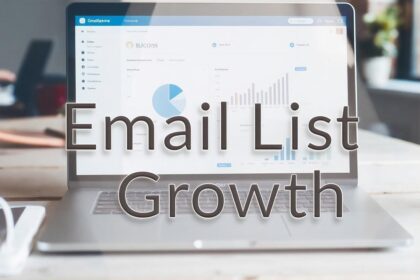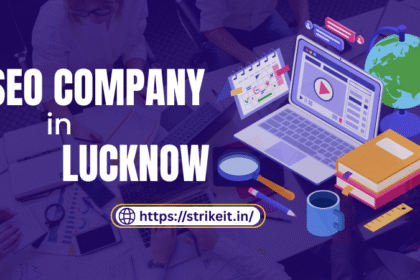Navigating B2B marketing today requires a careful balance between growth and compliance. Ensuring GDPR Compliant Lead Generation is essential for businesses that collect and manage personal data from European prospects. GDPR regulations are designed to protect individual privacy and require companies to handle personal information responsibly. By integrating GDPR compliance into lead generation strategies, marketers can not only avoid penalties but also build trust, improve engagement, and ensure long-term business sustainability.
Understanding GDPR and Its Relevance to Lead Generation
The General Data Protection Regulation (GDPR) was implemented to give EU citizens greater control over their personal information and to impose stricter obligations on businesses handling such data. For B2B marketers, this means that every lead collection activity—from email subscriptions to webinar registrations—must comply with GDPR standards. Non-compliance can result in fines of up to €20 million or 4% of global annual revenue.
Lead generation typically involves capturing email addresses, names, business roles, and company information. Under GDPR, each data point must be collected for a specific purpose, with explicit consent from the prospect. Implementing GDPR-compliant strategies ensures ethical data handling while fostering trust and credibility with potential clients.
Securing Explicit Consent from Prospects
Obtaining clear and informed consent is the cornerstone of GDPR compliance. Marketers must clearly explain what data is being collected, why it is needed, and how it will be used. Consent must be freely given, specific, and unambiguous. Avoid pre-ticked boxes or vague language, as these do not meet GDPR standards.
Consent management platforms (CMPs) can simplify this process by automating consent collection, securely storing records, and providing easy access for audits. Regularly reviewing consent ensures your lead database remains compliant and up-to-date.
Transparency and Communication
Transparency is critical in GDPR-compliant lead generation. Businesses must provide clear information to prospects about how their data will be used and who will have access to it. Privacy policies should be written in simple, understandable language and be easily accessible on websites and landing pages.
Using a double opt-in process, where prospects confirm their subscription or interest via email, ensures transparency and consent. This approach not only aligns with GDPR requirements but also improves the quality of leads entering your marketing funnel.
Data Minimization Practices
GDPR mandates that businesses collect only the data necessary for a specific purpose. Avoid collecting unnecessary or excessive information. For instance, if the goal is to send a newsletter, only an email address is required; additional data like home addresses or phone numbers may not be necessary.
By limiting data collection to what is essential, businesses reduce risks related to data breaches and simplify compliance processes. Prospects also appreciate that their personal information is being handled responsibly.
Implementing Strong Data Security Measures
Protecting personal data is a fundamental part of GDPR compliance. Businesses should implement robust security protocols, including encryption, access control, and secure storage. Access to sensitive data should be limited to authorized personnel only, and regular audits should be conducted to ensure data integrity.
Having a documented plan for responding to data breaches is crucial. GDPR requires organizations to report breaches promptly, and preparedness can significantly reduce potential legal and reputational consequences.
Choosing GDPR-Compliant Marketing Tools
Using CRM systems, marketing automation platforms, and lead capture tools that are GDPR-compliant can simplify the compliance process. Many modern platforms offer features such as consent tracking, data anonymization, and secure storage.
It is also critical to ensure that third-party vendors involved in your lead generation process adhere to GDPR standards. Contracts should clearly define responsibilities regarding data handling and storage.
Team Training and Awareness
GDPR compliance is a shared responsibility across departments. Marketing, sales, and customer service teams should be trained on GDPR principles, consent management, and secure data handling practices. Regular workshops and internal communications help maintain awareness and prevent accidental breaches.
Clear guidelines and standard operating procedures (SOPs) for data collection and processing ensure consistent compliance throughout the organization.
Regular Audits and Continuous Monitoring
Maintaining GDPR compliance requires ongoing auditing and monitoring. Review lead collection forms, email campaigns, and CRM data to ensure alignment with GDPR principles. Monitor consent records, check security protocols, and ensure third-party vendors are compliant.
Automated compliance monitoring tools can simplify oversight by providing real-time tracking, audit logs, and reporting capabilities. These measures demonstrate commitment to privacy and strengthen trust with prospects and clients.
Managing Data Subject Requests (DSRs)
GDPR grants individuals the right to access, correct, or request deletion of their personal data. Establishing a clear process for handling Data Subject Requests ensures timely compliance, usually within one month of receiving the request.
Implementing automated systems or dedicated contact points for DSRs enhances efficiency and reinforces the company’s dedication to data protection. Promptly addressing these requests builds credibility and fosters positive relationships with leads.
Ethical Lead Generation for Business Growth
Adopting GDPR-compliant lead generation practices is not only a regulatory necessity but also a strategic advantage. Prospects are increasingly privacy-conscious and prefer engaging with companies that handle their data ethically. Transparency, consent management, and secure handling of personal information contribute to a positive brand reputation and encourage loyalty.
By integrating GDPR compliance into your lead generation strategy, businesses can attract high-quality leads, increase engagement, and ensure sustainable growth while mitigating legal and reputational risks.
About Us : Acceligize is a global B2B demand generation and technology marketing company helping brands connect with qualified audiences through data-driven strategies. Founded in 2016, it delivers end-to-end lead generation, content syndication, and account-based marketing solutions powered by technology, creativity, and compliance.




